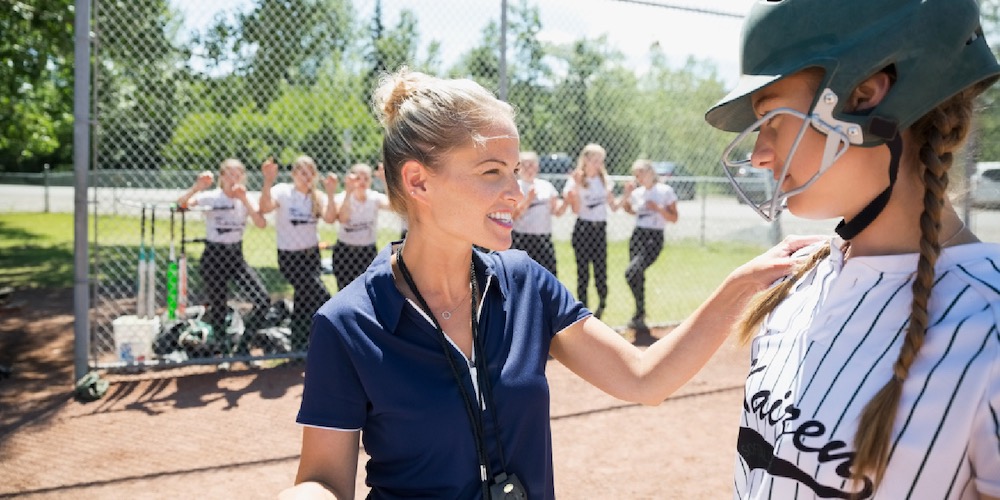Diamonds and Dugouts: Cultivating Mental Toughness in Young Softball Players

As a parent of a young softball player, your role extends far beyond cheering from the bleachers or supplying post-game snacks. You can be the unsung heroes in your young athlete’s journey to mental toughness. Let’s explore how you can help your softball star shine both on and off the diamond.
The Pitcher’s Mound of Emotions
Softball can be an emotional rollercoaster. Watch for signs that your player might be struggling:
- Unusual frustration after strikeouts or errors
- Extreme nervousness before games, especially for pitchers
- Isolation from teammates or loss of interest in practice
Early recognition of these “wild pitches” in their mental game can help prevent larger issues down the line.
Coaching from the Heart: Your Role in Mental Support for Your Young Athlete
Be the steady backstop your player may need:
- Listen without judgment after tough games
- Celebrate effort and improvement, not just wins
- Allow space for processing emotions before discussing performance
- Encourage interests outside softball for a well-rounded life
Remember, your support could be the home plate they always return to.
Sliding Into Positive Self-Talk
Help your player replace negative thoughts with empowering ones:
- “I always choke under pressure” becomes “I thrive in challenging situations”
- “I’ll never be as good as my teammates” shifts to “I bring unique strengths to our team”
Encourage a positive pre-game mantra, like “I trust my skills” or “I play with confidence.”
The Mental Warm-Up: Strategies for High-Pressure Situations
Softball is full of clutch moments. Teach your player to:
- Use visualization before stepping up to bat or taking the mound
- Focus on controllable factors like stance and breathing, not the scoreboard
- Develop a pre-performance routine to center themselves
When to Call for Relief: Recognizing the Need for Professional Help
Consider seeking professional support if you notice:
- Prolonged changes in mood or behavior
- Excessive performance anxiety or fear of failure
- Signs of depression, eating disorders, or substance abuse
- Inability to cope with the pressures of the sport
Remember, calling in a mental health professional is like bringing in a relief pitcher – it’s a smart strategy, not a sign of weakness.
The Season-Long Game Plan: Building Lasting Mental Fitness
Help your player develop enduring mental strength:
- Encourage mindfulness and meditation practices
- Teach goal-setting and time management skills
- Foster connections with teammates and coaches
- Promote a growth mindset that values effort and learning
Team Huddle: Fostering Open Communication
Create an environment where your player feels safe to share:
- Ask open-ended questions about their experiences and feelings
- Discuss goals together, and help ensure they’re realistic and personal
- Be available to listen, even if it’s just about their favorite pro players
The Softball Sisterhood: Embracing Team Culture
Softball often fosters a strong sense of sisterhood. Encourage your player to:
- Support teammates through ups and downs
- Participate in team bonding activities
- Embrace the collaborative spirit of the sport
By nurturing these connections, you can help build a support system that extends beyond the diamond.
In softball, as in life, it’s not just about the big hits, it’s about consistency, resilience, and teamwork. Your guidance helps transform each practice, game, and season into opportunities for mental growth. So, step up to the plate in your child’s mental health game. With your support, they can be ready to knock life’s curveballs out of the park, long after they’ve hung up their cleats. Play ball!
Keep Your Young Softball Star Safe on Every Swing
With pomi’s youth softball insurance, you can help cover the bases of protection—on the field and off. Choose from two powerful coverage options, or combine them for extra reassurance, so your athlete can play without worry and focus on hitting it out of the park!

